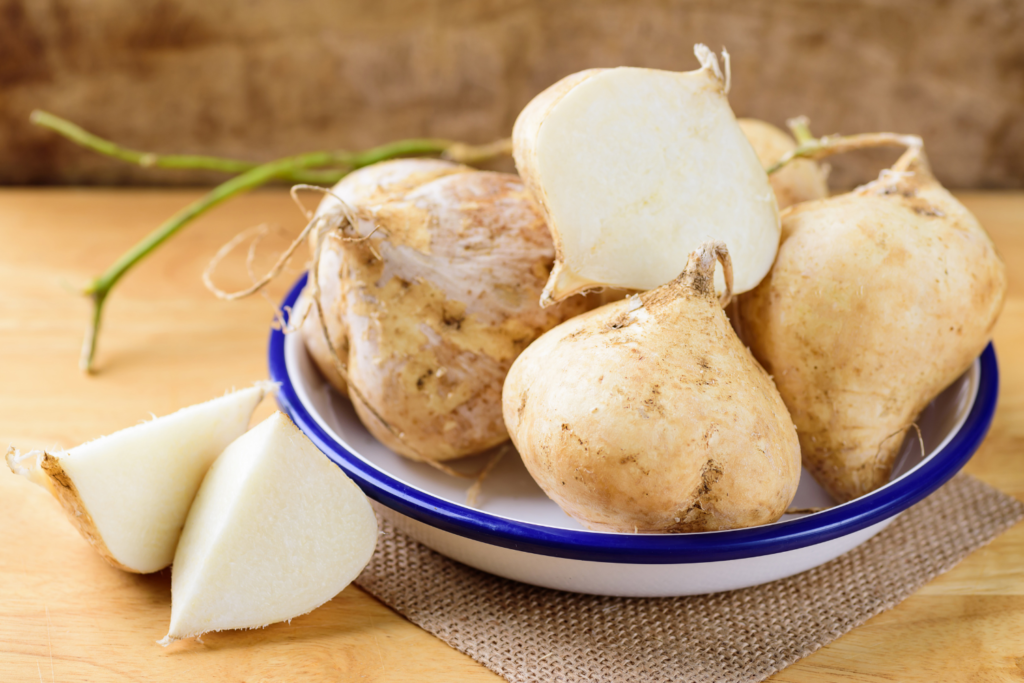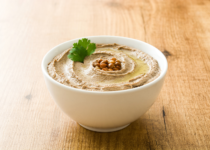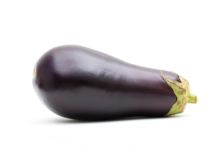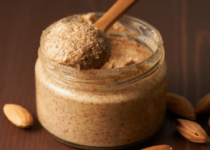Can Dogs Eat Jicama?

Can Dogs Eat Jicama? Exploring the Safety and Health Considerations
As responsible pet owners, we strive to provide our furry friends with a nutritious and balanced diet. In our quest to offer a variety of foods, we may come across jicama, a root vegetable known for its crunchy texture and mild flavor. However, when it comes to our canine companions, it’s important to determine whether jicama is safe for their consumption. In this article, we will explore the question, “Can dogs eat jicama?” and examine the safety and health considerations associated with feeding jicama to dogs.
Understanding Jicama:
Jicama, also known as Mexican turnip or yam bean, is a root vegetable native to Mexico. It has a brown, rough skin and a crisp, white flesh. Jicama is often consumed raw and can be used in salads, slaws, or as a crunchy snack. Before introducing jicama into a dog’s diet, it is essential to understand its potential benefits and risks.
Can Dogs Eat Jicama? Examining Safety:
- Digestive Considerations:
When considering whether dogs can eat jicama, their digestive system should be taken into account. Jicama is rich in dietary fiber, which can aid in digestion for dogs, promoting regular bowel movements. However, feeding excessive amounts of jicama may lead to gastrointestinal upset, including gas or diarrhea. Introduce jicama gradually into your dog’s diet to assess their tolerance and avoid overfeeding. - Potential Choking Hazard:
While jicama is generally safe for dogs, its crunchy texture can pose a choking hazard, especially if given in large chunks or slices. It is recommended to cut jicama into small, manageable pieces or shred it before offering it to your dog. Supervise your dog while they eat jicama to ensure they chew it properly and avoid any choking incidents. - Allergies and Sensitivities:
Although jicama is not a common allergenic food for dogs, individual sensitivities or allergies may occur. Some dogs may develop gastrointestinal upset, itching, or skin rashes after consuming jicama. If you notice any signs of an allergic reaction, such as vomiting, diarrhea, or difficulty breathing, discontinue feeding jicama and consult with a veterinarian.
Benefits of Jicama for Dogs:
- Low-Calorie and Nutrient-Rich:
Jicama is a low-calorie vegetable that contains essential nutrients such as vitamin C, fiber, and potassium. These nutrients can support your dog’s overall health and well-being. However, it’s important to note that dogs have different nutritional requirements than humans, and jicama should only be a supplemental part of their diet. - Hydration and Weight Management:
Jicama has a high water content, which can contribute to your dog’s hydration, especially during hot weather or for dogs that may not drink enough water. Additionally, its low-calorie nature makes it a suitable option for dogs on a weight management program. However, jicama should never replace a dog’s primary water source or serve as the sole weight management solution. - Dental Health and Chewing Stimulation:
The crunchy texture of jicama can provide dogs with chewing stimulation, which is beneficial for their dental health. Chewing on jicama can help scrape away plaque and tartar buildup, promoting healthier teeth and gums. However, it is important to remember that jicama should be given in appropriate portions to prevent any dental damage.
Feeding Jicama to Dogs:
- Preparation and Serving:
Before offering jicama to your dog, it is crucial to prepare it properly. Remove the skin and any seeds, as these parts may be difficult for dogs to digest. Cut the jicama into small, bite-sized pieces or shred it for easier consumption. - Moderation is Key:
While jicama can provide some benefits to dogs, it should be given in moderation. Treat jicama as a supplement or occasional treat in your dog’s diet rather than a staple food. It is important to provide a well-balanced diet that meets all of your dog’s nutritional needs. - Individual Considerations:
Every dog is unique, and their dietary needs may vary. Factors such as age, size, health conditions, and any existing dietary restrictions should be taken into account before introducing jicama. Consulting with a veterinarian can provide personalized advice tailored to your dog’s specific needs.
In conclusion, the question “Can dogs eat jicama?” warrants careful consideration. Jicama can be a safe and healthy addition to a dog’s diet when fed in moderation and prepared appropriately. It offers potential benefits such as fiber, hydration, and dental health stimulation. However, it is crucial to monitor your dog’s response to jicama and consult with a veterinarian if you have any concerns or questions about incorporating it into their diet. Remember to prioritize your dog’s well-being and provide them with a balanced and nutritious diet for optimal health.


